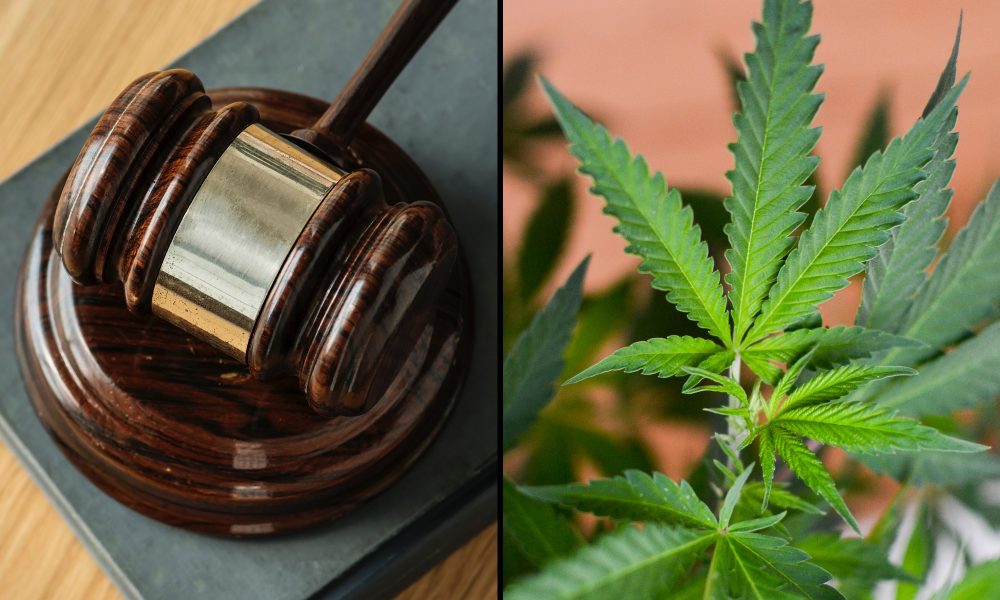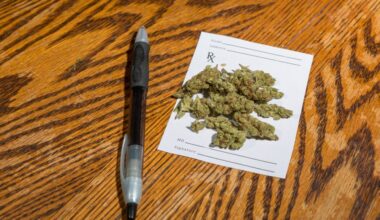The Drug Enforcement Administration (DEA) is being sued over repeated delays to requests for records related to psychedelics and marijuana.
This comes amid a multitude of drug policy-focused legal challenges the agency has faced in recent years, including one that concerns DEA’s refusal to provide a doctor with access to psilocybin to treat terminally ill patients under “right to try” laws.
But while connected, and involving some of the same plaintiffs and attorneys, this new suit centers on DEA’s alleged “unlawful policy” of delaying responses to Freedom of Information Act (FOIA) requests, specifically pertaining to psychedelics and marijuana documents that advocates say they’ve sought for legal and journalistic purposes.
Attorney General Merrick Garland may have issued guidance on Justice Department FOIA policy in March, emphasizing that agencies should be responsive to requests in an open and timely manner, but DEA “flouts these principles of transparency and good government,” the lawsuit says.
The legal challenge, filed in a federal district court in Texas on Tuesday, comes from a doctor who is part of a separate case contesting DEA’s interpretation of “right to try” laws as it concerns psilocybin, as well attorneys Matt Zorn and Kathryn Tucker, who both worked on that case.
Each of the plaintiffs have laid out the reasons why they are uniquely impacted by DEA’s recalcitrance on FOIA requests. The agency has “adopted an unlawful policy and pattern or practice” of designating requests as “complex,” regardless of the actual complexity of the documents sought, the lawsuit says.
In assigning the FOIA inquiries as “complex” because retrieving the documents in question might involve coordinating with outside offices, DEA has consistently said that the requests raise “unusual circumstances” that exempt them from the statutorily imposed timeline for responding.
“This policy and pattern or practice rests on a perversion of FOIA’s plain language,” the suit says. “Plaintiffs are attorneys and their clients who have submitted FOIA requests to DEA only to have the agency unlawfully ignore the statute’s processing deadlines merely because the requested records were not present at DEA’s FOIA office.”
Accordingly, the plaintiffs are asking the court to enjoin the Justice Department and DEA “from applying the unlawful policy and pattern or practice and directing Defendants to take immediate corrective action to prevent future FOIA violations.”
The lawsuit also describes a litany of examples of the types of FOIA requests that the plaintiffs have submitted.
For instance, after DEA denied the petitions of a doctor at the Washington-based AIMS Institute who wanted to access psilocybin for oncology patients—and a federal appeals court rejected the case on procedural grounds—Sunil Aggarwal quickly followed up to ask the agency for a final, appealable declaration in the case so the policy could be challenged in court again on merits.
DEA’s months of silence on the follow-up petitions prompted the doctor to submit FOIA requests simply asking the agency to confirm their receipt. Under statute, DEA had 20 days to respond to the inquiries, but that deadline passed and Aggarwal had to reach out again for a status update. When a representative finally responded, they asserted that the request was “complex” and there were “unusual circumstances” that meant they would need more time for processing, despite the limited scope of the ask.
This experience, in turn, led AIMS Institute attorney Tucker to file a sort of meta-FOIA for all documents related to the initial FOIA request. But DEA eventually said it was “administratively closing” the secondary request because it was still processing the first.
Meanwhile, attorney and journalist Zorn, who has extensive experience in drug policy litigation against DOJ and DEA, “has submitted more than a half dozen FOIA requests to DEA seeking information relevant to an unrelated administrative proceeding that is currently pending before DEA.” All but one were deemed to have “unusual circumstances” that meant they were exempt from the statutory FOIA timeline.
The “most egregious example” of DEA’s alleged unlawful FOIA practice was the result of a request from Zorn that was related to the agency’s proposal to ban five psychedelic compounds that scientists and advocates say hold significant therapeutic potential that could go untapped if research barriers were erected as a consequence of a Schedule I designation.
“On April 4th, Zorn submitted a FOIA request seeking records that DEA relied on for a technical analysis published in the Federal Register supporting the placement of five chemicals into Schedule I,” the suit says. “The technical analysis cites and relies on over two dozen unpublished drug discrimination studies done under a government contract.”
“On information and belief, these requested records are not difficult for DEA to access,” it continues. “Indeed, on information and belief, the records are in DEA’s rulemaking file.” Zorn even “specifically identified agency counsel who had possession, custody, or control of the records.”
“Confused as to how the agency deemed every FOIA request as raising ‘unusual circumstances,’ including those described above, Zorn called DEA’s FOIA officer on May 11th to inquire about the agency’s process. The FOIA officer explained that it was ‘DEA policy’ to mark all incoming FOIA requests that required contacting any office within DEA other than the FOIA office as raising ‘unusual circumstances.’ In other words, if a request seeks any record that isn’t coincidentally in the processing office itself, DEA deems it per se ‘unusual’ and ‘complex.’”
While frustrating for plaintiffs on its own, the FOIA controversy is just one part of more wide-ranging litigation against DEA’s often obscure policies, including those that have resulted in the denial of psilocybin access under state and federal “right to try” statute.
Attorneys have tried from multiple angles to get DEA to confirm that its decision to deny the doctor’s petitions was final. But in letters to the plaintiffs, the agency has not made that clear. Last month, Tucker sent a last letter seeking the clarification, and if DEA does not respond by close of business on Wednesday, they will take that to mean the agency has made a final judgment. Accordingly, they will file another lawsuit in the same federal court that had procedurally rejected the case and turn to the merits of the final decision.
Relatedly, activists including one of the plaintiffs in the right to try case, Erinn Baldeschwiler, staged a demonstration outside of DEA headquarters in Virginia in May, demanding that the agency allow terminally ill patients to access psilocybin therapy.
The event—which involved civil disobedience and arrests—was meant to call attention to DEA’s obstruction of Right to Try statutes at the federal and state level that patients and advocates say should facilitate legal use of psychedelics.
Advocates have pointed out that the Food and Drug Administration (FDA) has already granted psilocybin a “breakthrough therapy” designation.
In January, a bipartisan group of members of Congress sent a letter urging DEA to let terminally ill patients have access to psilocybin. The agency, lawmakers said, is “obstructing access to psilocybin for therapeutic use consistent with the letter and intent Right to Try (RTT) laws.”
Meanwhile, DEA recently announced that it is taking the rare step of holding a hearing on its controversial proposal to place the five psychedelic compounds in Schedule I of the Controlled Substances Act.
The agency first proposed scheduling the tryptamines—4-OH-DiPT, 5-MeO-AMT, 5-MeO-MiPT, 5-MeO-DET and DiPT—in January. And it faced significant pushback from the research and advocacy communities, receiving nearly 600 messages during a public comment period, with most opposing the rule change and requesting a hearing.
DEA’s own administrative court subsequently agreed that there was a need to hold a hearing on the matter before the prohibition could be enacted.
The agency has separately increased production quotas for the production of certain psychedelics like psilocybin in an effort to promote research, but its scheduling decisions have continued to represent obstacles for scientists.
Meanwhile, DEA also recently revealed that it seized far more marijuana plants—and made significantly more cannabis-related arrests—in 2021 than in recent prior years, despite reform efforts in states and Congress.
Read the lawsuit against DEA concerning psychedelic and marijuana FOIA response delays below:
Transportation Department Reminds Workers They Can’t Use Marijuana And Cautions Against CBD
Photo elements courtesy of rawpixel and Philip Steffan.
Medical Disclaimer:
The information provided in these blog posts is intended for general informational and educational purposes only. It is not a substitute for professional medical advice, diagnosis, or treatment. Always seek the advice of your physician or other qualified healthcare provider with any questions you may have regarding a medical condition. The use of any information provided in these blog posts is solely at your own risk. The authors and the website do not recommend or endorse any specific products, treatments, or procedures mentioned. Reliance on any information in these blog posts is solely at your own discretion.







